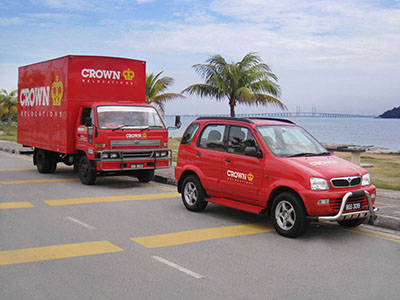Modern life can be incredibly stressful, with work piling up, family dramas and other assorted problems. It’s no wonder that so many dream of a fresh start. A change in lifestyle raises many questions, but here's five that are bound to be priority:
It’s no wonder that so many dream of a fresh start. A change in lifestyle raises many questions, but here's five that are bound to be priority:
1. Do I need a visa?
Depending on where you are moving to, from and your nationality, you
may need to obtain a visa to enable you to enter the country. Visas will
normally have conditions attached that may include the territory
covered, the time the visa is valid and the period that you may stay in
the country.When moving to and working in certain countries, you may
also need to obtain residency and work permits. Some countries will
allow you to travel in and out as a tourist freely without having to
obtain any visa/permits.
2. Will I be able to work abroad?
For many countries, you must be a skilled professional or trades person
to enter and for that particular country to have a need or demand for
your profession. You would need to have a recent track record of your employment history or relevant qualifications before entering the
host country. By having the necessary language skills and trade/professional experience for that country will help in making your
application more attractive. Some countries in the world are harder to get a visa to work, always check before applying to any country
to ensure you have the required skills.
3. Does the length of stay make a difference?
Depending on the country you are visiting there are different rules for short-term travel. However, if you are planning on living
and working in the country rather than traveling as a tourist, in many places there will be restrictions in place that mean you need a
specific work visa rather than leaving and re-entering the country regularly. We would advise you check all details before entering a
country as this information is a guideline only.
4. How easily can I find a home abroad?
Pitching up in a new country and staying in a hotel for a week, before scouring through the local paper for places to rent is how many
young professionals traveling to a country would typically reside – it provides an opportunity to become familiar with the local areas and
look for long-term accommodation. However, no matter how you begin, it is always important to use a reputable estate agent when
searching for accommodation. Most will require reference checks to ensure you don’t have a criminal record or county court judgment.
Normally a bank reference and employment reference (if you have this) are required to ensure the necessary due diligence has been
carried out for the landlord. Some countries may require rent payment upfront, other countries require monthly payments.
Alternatively, Crown Relocations can provide a home search specialist to speed up this process. We’ll discuss suitable areas, budget of
accommodation and special requirements with you and provide a detailed understanding of where you can afford to find the property
you are looking for, as well as organizing research and accompanying you to view the properties. Crown can also assist with
proof-reading the tenancy agreements and providing the support and protection needed if you do not have local knowledge and
experience of the legal agreements relating to renting accommodation.
5. How do I know whether an area is right for me?
When finding a place to call home, you’ll probably want to take into account factors such as distance from the area in which you’ll be
working, the public transport options, and proximity to shops and facilities. In some countries, you might also prefer living in areas which
are commonly inhabited by other expats. Expat websites are a great way of gaining inside information as you can use the chat rooms to
talk to people in a similar situation to you but who have already moved and settled-in. Check out our settling-in tips which will help you to
gain an overview of your country of choice.
Make sure you do research of your destination country before making any final decisions so you know exactly what is expected of you before relocating. There is lots of information across our website that will help you plan. And lastly, never bypass the required documentation at any point. The risks of not getting a visa can include you being refused entry, so it is important that you seek advice from a relocation company or immigration service to help you obtain the relevant documents.